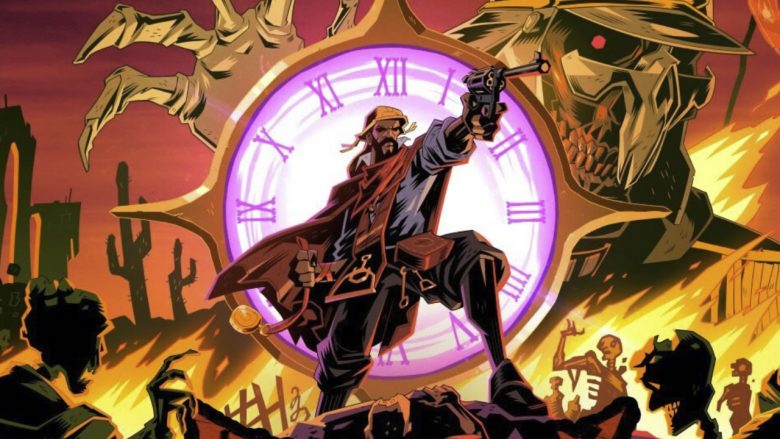Although loosely based on the very real Canudos War in Brazil, which took place in 1896, Hell Clock is very much a fantasy adventure in the vein of Hades and Curse of the Dead Gods. Your lone gunman ventures out time and again to face down zombies, monsters, and mutants, both cursed and empowered by the titular Hell Clock.
This ancient artefact allows your protagonist to head out into the depths of Hell for a limited time only, before the clock counts down and he dies, only to be resurrected to fight again. You can extend the time you have through permanent upgrades, but you’re always beholden to the countdown.
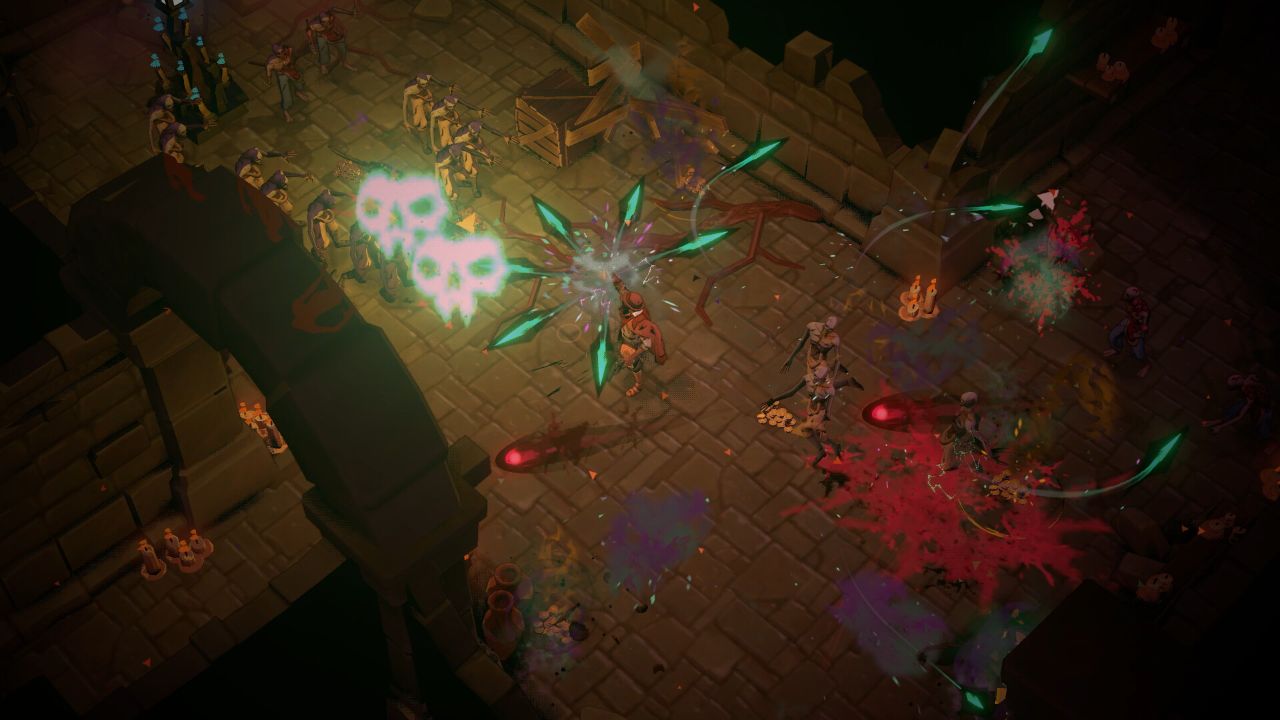
Gameplay follows a similar pattern to the aforementioned Curse of the Dead Gods, which it resembles more so than Hades. There are elements of isometric dungeon crawlers in there too, as in addition to the standard three-choice roguelike upgrades you can also collect loot in the form of hats, coats, boots, gloves, and pistols that infer different stat boosts.
Mowing down enemies drops nuggets of XP as in a Survivor-like, which presents you with three upgrade choices each time you increase your level. A lot of these add elemental damage to your attacks or increase your movement speed and rate of fire, which makes sense as time is literally the essence of gameplay. Hell Clock is difficult, and it can spike considerably for bosses or if you’ve just been unlucky with randomised upgrades, but its progression system is really well considered. You’re always improving your chances, with upgrades, loot, and unlockables that make a real difference.
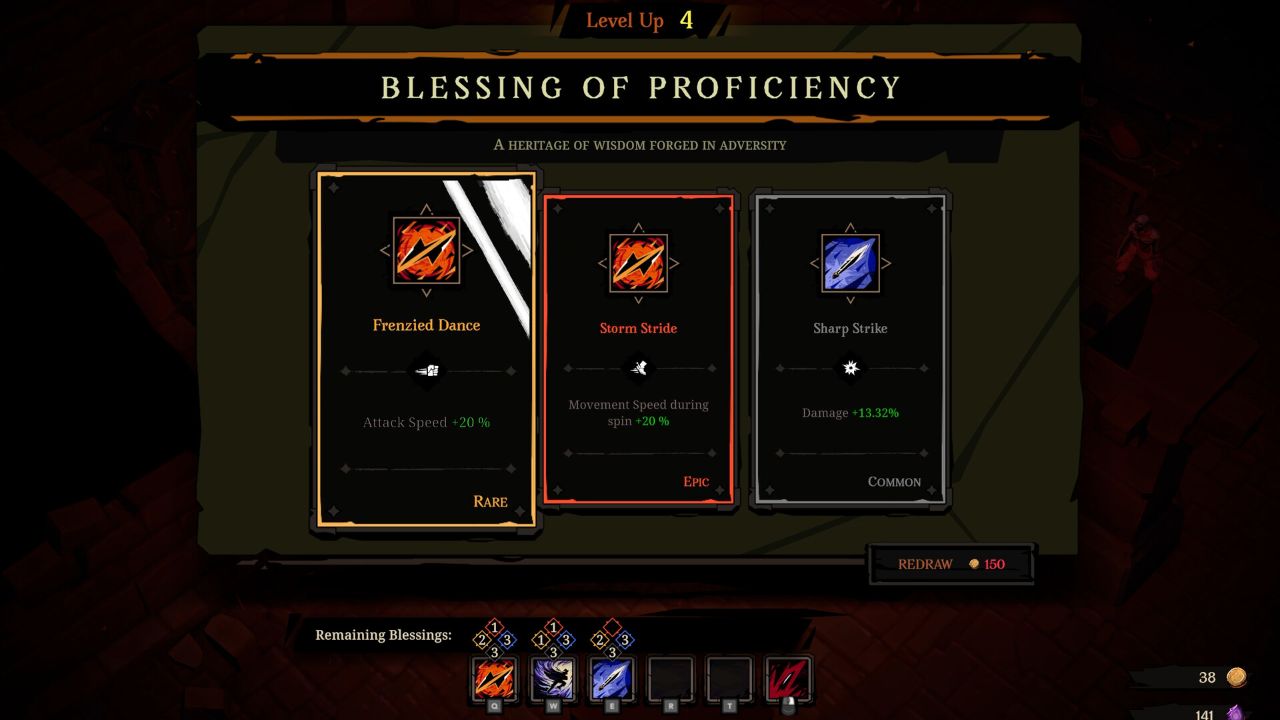
Two alternate modes round out the experience nicely. In Hardcore mode you only have one life, so seeing how far you can get is the primary loop before having to start over, while Relaxed Mode removes the time pressure and retains the challenge.
Combat feels fast and smooth, as you dodge between enemy projectiles and unleash multiple abilities on the enemy, from rapid fire pistols to homing rockets and spread-shot. You can slow enemies or set them ablaze, and the constant influx of different modifiers, both positive and negative, keep things fresh and engaging. It helps that it looks phenomenally good in motion, with dark, rich cel-shaded visuals and gloomy, atmospheric environments.
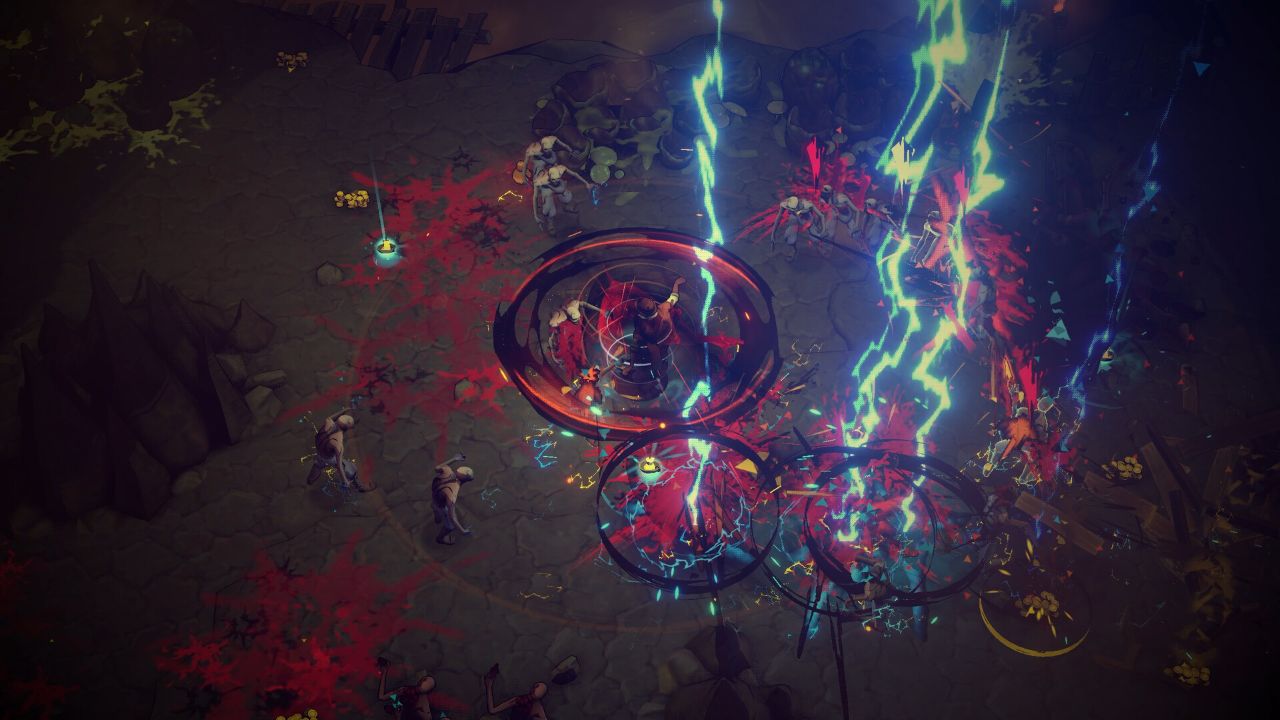
Given the roguelike randomisation, you are beholden to the whims of chance a little. A really good run with loads of upgrades that compliment your playstyle will always feel better, but because your gear upgrades and abilities are constant through multiple deaths and restarts, the issue is less egregious than I’ve seen elsewhere.
As you progress you’ll slowly unlock more and more services in the safe zone where you respawn, allowing you to buy gear, temporary boosts, unlock and change skills, and advance along your talent tree, adding incremental boosts to damage, Clock time, speed, and defence. A reliquary system gives you limited space in which to slot relics of various sizes to combine and awaken special bonuses to multiple stats. Again, progression is handled so well that you always feel you’re improving between runs, reaching each boss just a little quicker and dispatching them faster.
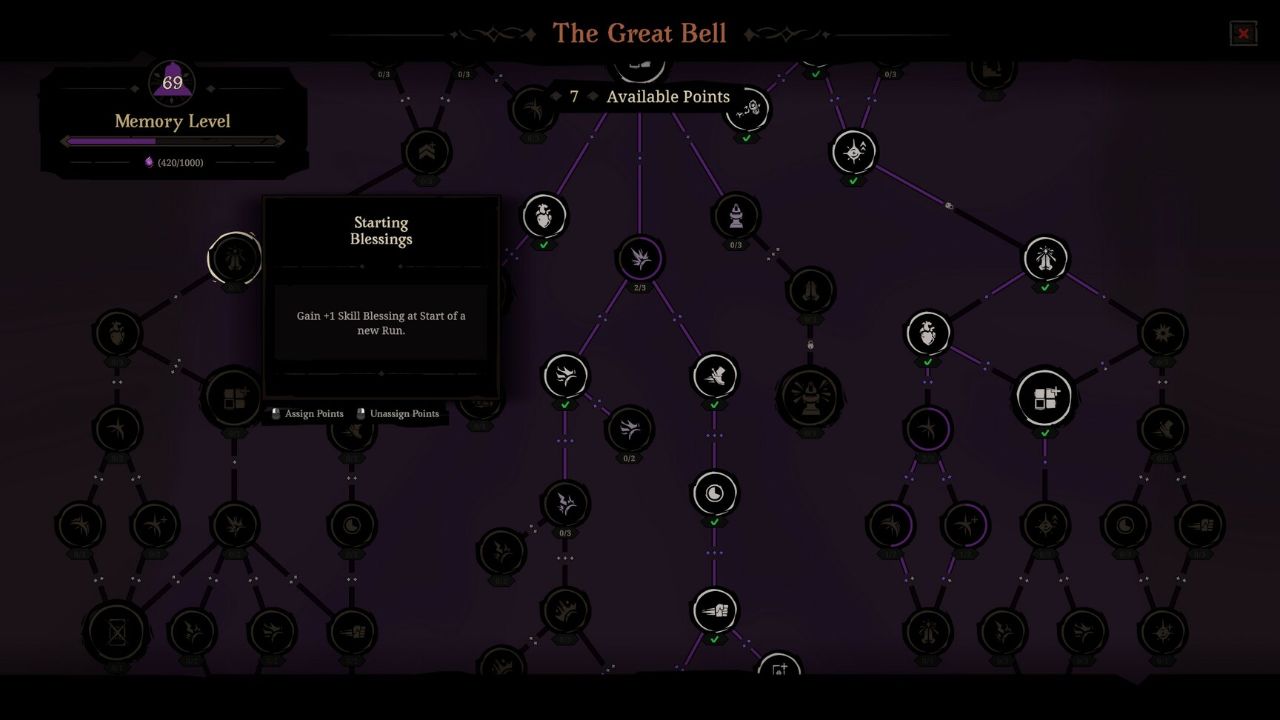
Temptations are scattered throughout each run randomly in the form of chests and Diablo-like shrines. Chests often contain artefacts that further increase your stats, though only for the run, combining with specific skills and attributes to make you tougher and tougher with each one you snag. Of course, you could just mainline every level of the dungeon, but what you make up in timeliness you’ll lose in raw power.
Hell Clock is one of those games that cherry picks so many ideas from so many different sources that it manages to feel original when taken as a whole. The setting is perhaps its most unique element (there aren’t many games set in Brazil full stop, let alone during the War of Thingy) but that doesn’t feel like a bad thing here. Rogue Snail have done such a great job combining the disparate elements that Hell Clock feels at the same time familiar
